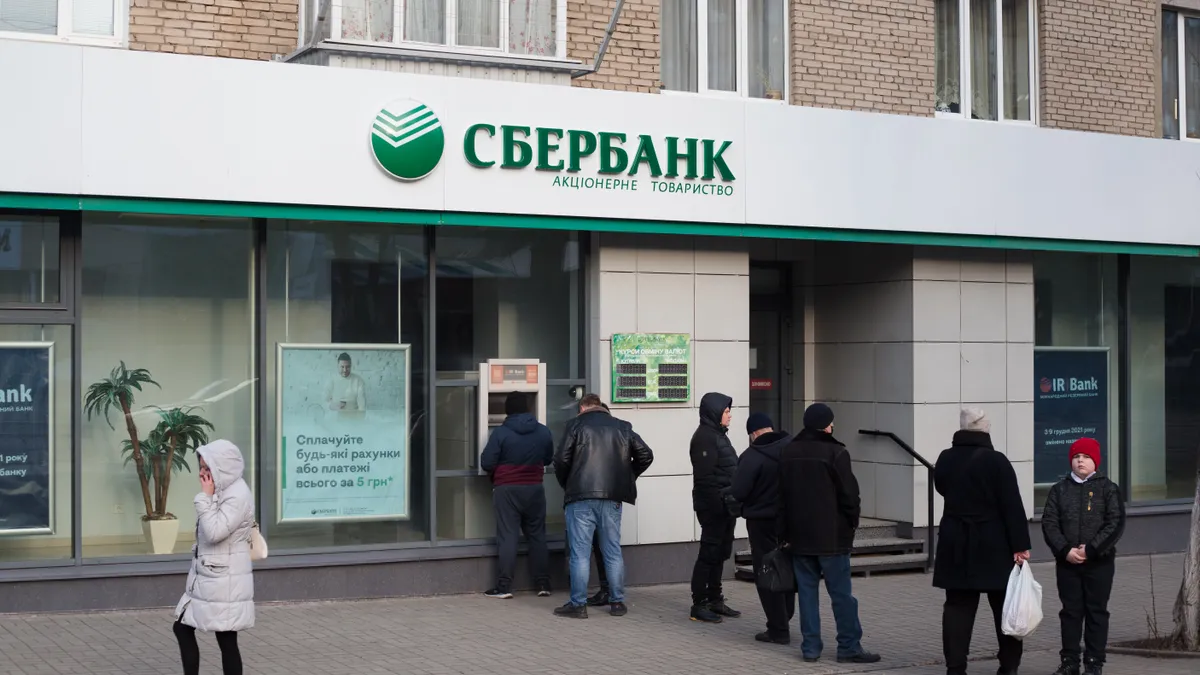European Union representatives agreed to remove seven Russian banks from the Society for Worldwide Interbank Financial Telecommunication (SWIFT), the Belgium-based global financial messaging service, Bloomberg reported Tuesday, citing anonymous sources.
The banks are VTB Bank, Bank Otkritie, Novikombank, Sovcombank, Promsvyazbank, Bank Rossiya and VEB, the sources told the wire service. The U.S. had already placed blocking sanctions against the first four of those banks. That move ordered assets tied to VTB, for example, that are held in U.S. financial institutions to be instantly frozen and inaccessible to the Kremlin as of last Thursday, in response to Russia’s invasion of Ukraine.
Russia’s largest lender, Sberbank, as well as Gazprombank, which is 46% owned by energy conglomerate Gazprom, would remain connected to SWIFT — another indicator European and North American powers have sought to limit the impact of sanctions on the world’s oil and gas supply. And, for that matter, perhaps, on everyday Russians. Sberbank counts more than 100 million retail banking customers and holds roughly half of Russia’s deposits.
Leaving the European market
Despite being spared, Sberbank is clearly taking a hit. Shares of the Russian bank were trading at 1 cent on the London market Wednesday — a 99.9% drop from the beginning of the year.
The bank said in a Wednesday statement it would pull out of the European market, as its subsidiaries there "faced an exceptional outflow of funds and a number of safety concerns regarding its employees and offices." The Russian central bank’s ban on moving funds abroad means Sberbank "cannot provide liquidity" to its European operations, the bank said.
Sberbank Europe, the bank’s Austria-based subsidiary, will be liquidated under local insolvency procedures, the Single Resolution Board (SRB) said Tuesday.
"We had been monitoring the situation for some time," the SRB’s chair, Elke König, told the Financial Times. "But the failing of this institution came at lightning speed."
König said she was confident the unit held sufficient assets to repay its €1billion in deposits, but it was unclear whether they would cover all liabilities.
Sberbank’s Croatian and Slovenian units, meanwhile, have been sold for a "small positive sum" to Hrvatska Poštanska Banka and Nova Ljubljanska Banka, respectively, the SRB said. The Russian bank’s Czech unit has been put in insolvency and its operations in Hungary have been frozen pending a final decision, Konig said.
A group of banks led by Slovenia’s AIK Banka had agreed last year to buy Sberbank’s Croatian, Slovenian and Hungarian units — along with its operations in Serbia and Bosnia. König said that deal had "already come to a halt" and wouldn’t have been finalized amid current sanctions, according to the Financial Times.
Tuesday’s move marks just the second time the SRB has taken control of a bank since 2015. The agency masterminded the sale of Banco Popular in Spain to Santander in 2017 for €1.
The SWIFT restrictions, meanwhile, would take effect 10 days after they are adopted, Bloomberg’s sources said, noting that one EU member sought a 30-day lead time.
"We will disconnect them once we receive legal instruction to do so," SWIFT told the wire service in a statement Tuesday.
Poland and other EU countries pressed for more banks to be included in the sanctions, Bloomberg reported.












